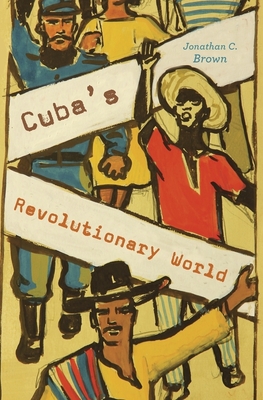

 Harvard University Press
Harvard University Press
Cuba's Revolutionary World


Key Metrics
- Jonathan C Brown
- Harvard University Press
- Hardcover
- 9780674971981
- 9.4 X 6.4 X 1.8 inches
- 2.3 pounds
- History > Caribbean & West Indies - Cuba
- English
 Secure Transaction
Secure TransactionBook Description
On January 2, 1959, Fidel Castro, the rebel comandante who had just overthrown Cuban dictator Fulgencio Batista, addressed a crowd of jubilant supporters. Recalling the failed popular uprisings of past decades, Castro assured them that this time the real Revolution had arrived. As Jonathan Brown shows in this capacious history of the Cuban Revolution, Castro's words proved prophetic not only for his countrymen but for Latin America and the wider world.
Cuba's Revolutionary World examines in forensic detail how the turmoil that rocked a small Caribbean nation in the 1950s became one of the twentieth century's most transformative events. Initially, Castro's revolution augured well for democratic reform movements gaining traction in Latin America. But what had begun promisingly veered off course as Castro took a heavy hand in efforts to centralize Cuba's economy and stamp out private enterprise. Embracing the Soviet Union as an ally, Castro and his lieutenant Che Guevara sought to export the socialist revolution abroad through armed insurrection.
Castro's provocations inspired intense opposition. Cuban anticommunists who had fled to Miami found a patron in the CIA, which actively supported their efforts to topple Castro's regime. The unrest fomented by Cuban-trained leftist guerrillas lent support to Latin America's military castes, who promised to restore stability. Brazil was the first to succumb to a coup in 1964; a decade later, military juntas governed most Latin American states. Thus did a revolution that had seemed to signal the death knell of dictatorship in Latin America bring about its tragic opposite.
Author Bio
Jonathan C. Brown's new book, Cuba's Revolutionary World, came out at the Harvard University Press in the spring of 2017. He has written four other single-authored books: A Socioeconomic History of Argentina, 1776-1860 (1979); Oil and Revolution in Mexico (1993), Latin America: A Social History of the Colonial Period (2nd ed., 2005), and A Brief History of Argentina (2nd ed., 2009).
Three of these books have been translated and published in Latin America. His first book on Argentina, published at Cambridge University Press, won the Bolton Prize. Brown also has edited a collection of essays on workers and populism in Latin America and co-edited books on the Mexican oil industry and on Argentine social history.
Source: The University of Texas at Austin Department of History
Videos
No Videos
Community reviews
Write a ReviewNo Community reviews